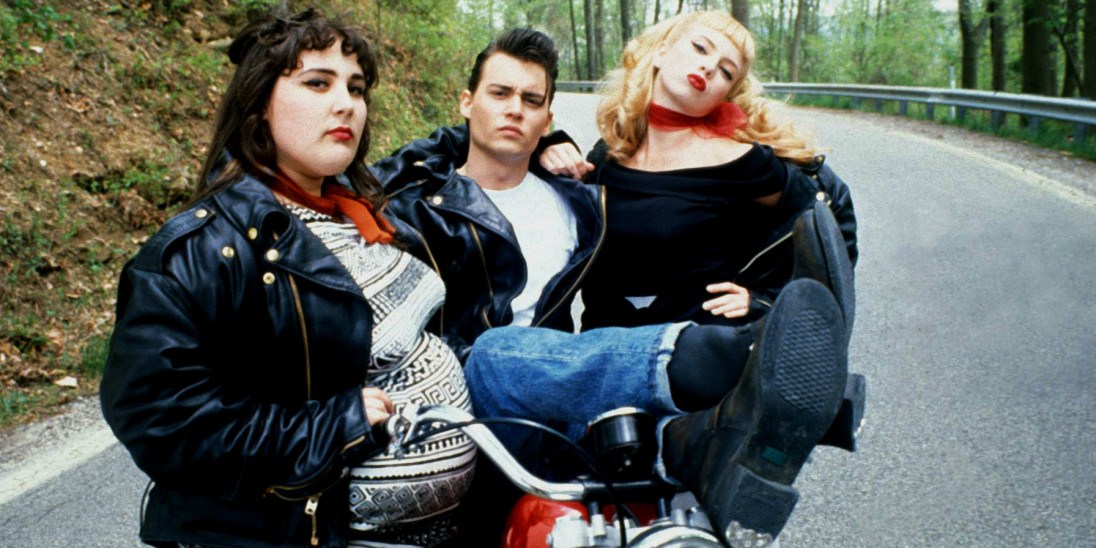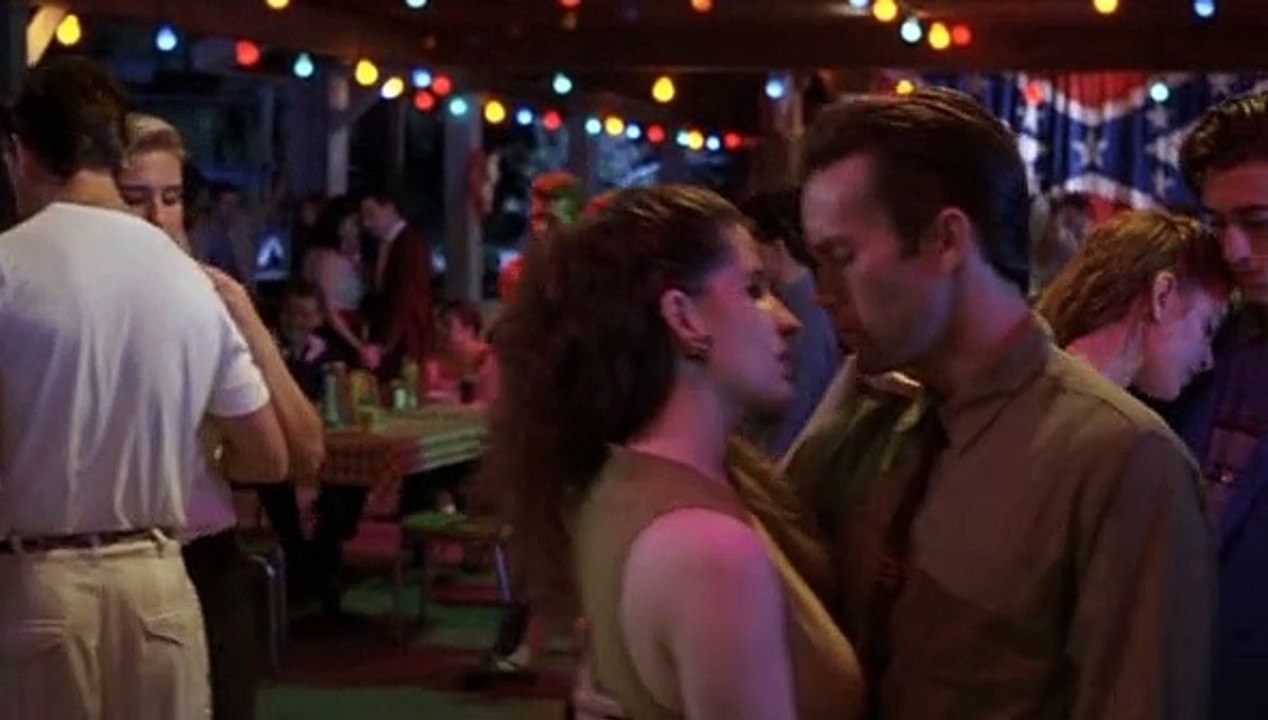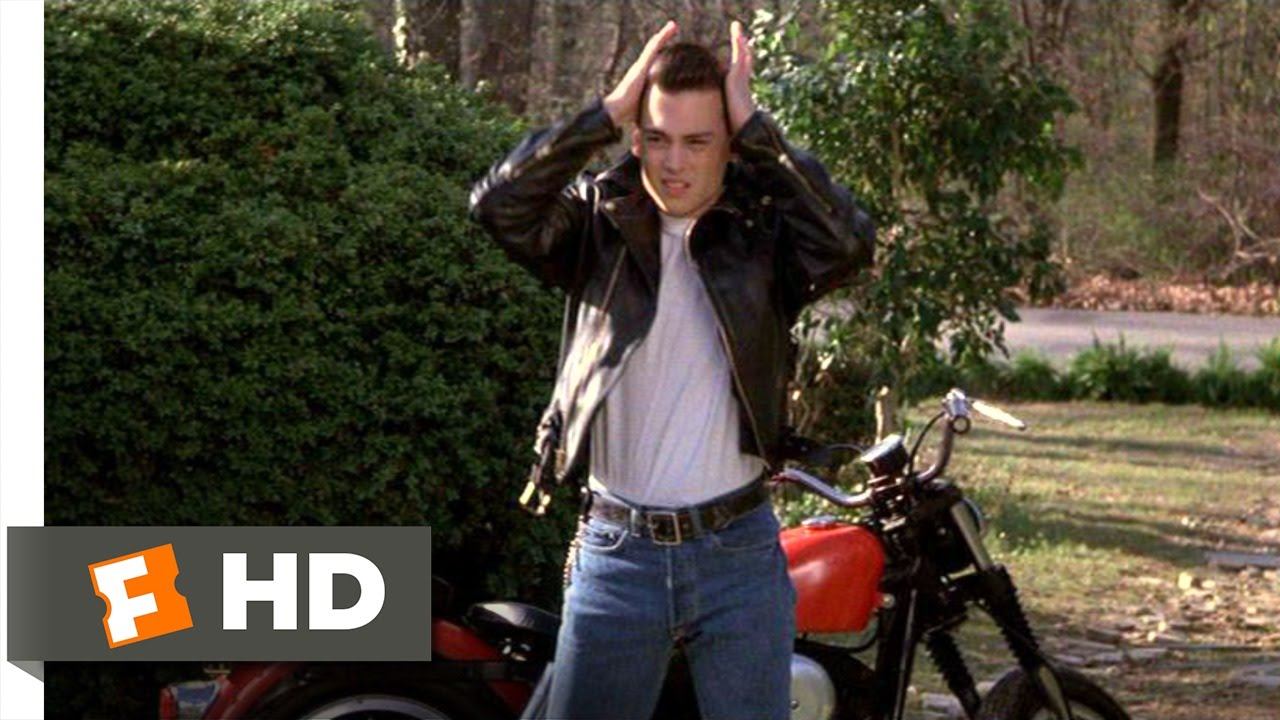Cry-Baby (1990)

“Cry-Baby” (1990) is a musical teen romantic comedy film directed and written by John Waters. Set in the 1950s, the film is a quirky and satirical take on youth culture, rebellion, and the clash between social classes. Starring Johnny Depp, Amy Locane, and Tracy Lords, the film blends humor, romance, and music to create a memorable coming-of-age story filled with energetic performances and catchy tunes.
The plot of “Cry-Baby” centers around Wade “Cry-Baby” Walker (Johnny Depp), a misunderstood teenage delinquent who is known for his rebellious attitude and ability to make girls swoon. Cry-Baby falls in love with Allison Vernon-Williams (Amy Locane), a prim and proper girl from a wealthy family. Their romance sparks a battle between social classes, as Allison’s well-to-do background clashes with Cry-Baby’s “Drapes” gang, a group of rebellious teens. The movie explores the tension between these two groups, highlighting themes of love, defiance, and societal expectations.
One of the key themes in “Cry-Baby” is the rebellion of youth. The film’s characters, especially Cry-Baby and his friends, embrace their defiant attitudes as a form of self-expression. The Drapes, with their leather jackets and greaser hairstyles, represent a subculture that rejects societal norms and seeks to carve out their own identity. This theme of rebellion is countered by the more conservative and conformist “Squares,” like Allison’s family, who struggle to understand the freedom and individuality that the Drapes value.
The performances in “Cry-Baby” are full of energy and charm, particularly Johnny Depp’s portrayal of the titular character. Depp brings a mix of toughness and vulnerability to Cry-Baby, making him a likable and sympathetic protagonist. Amy Locane, as Allison, provides a perfect contrast to Depp’s character, capturing the innocence and confusion of a girl torn between her traditional upbringing and her desire for excitement. The supporting cast, including Tracy Lords and Ricki Lake, add comedic flair and further enhance the film’s lively atmosphere.

The film’s musical numbers are a highlight, with several energetic and memorable songs that help tell the story. The soundtrack features a mix of rock and roll and doo-wop music, capturing the essence of the 1950s and adding a sense of nostalgia to the film. The musical performances are vibrant and full of life, reflecting the characters’ emotions and the rebellious spirit of the era. These musical moments contribute to the film’s playful tone and give it a unique and engaging quality.

Director John Waters brings his signature sense of camp and satire to “Cry-Baby,” creating a film that is both over-the-top and genuinely heartfelt. The film’s humor is a blend of absurdity and social commentary, with Waters using exaggerated characters and situations to explore themes of class, love, and identity. The colorful, exaggerated style of the film enhances its whimsical nature and sets it apart from other teen movies of the time.

In conclusion, “Cry-Baby” is a fun and quirky teen musical that mixes romance, rebellion, and satire in a way that remains memorable and entertaining. With strong performances, catchy music, and a playful tone, the film captures the essence of youthful defiance and the search for individuality. John Waters’ direction gives the film a unique flair, and its themes of love, social class, and self-expression continue to resonate with audiences. “Cry-Baby” is a cult classic that remains a beloved entry in the genre of teen comedies and musicals.











